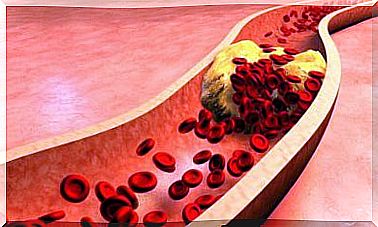Can Gastric Ulcers Be Prevented?
Preventing gastric ulcers is a task that involves changing habits and putting healthy recommendations into practice. Here are the ones to apply first.

Peptic ulcer disease is quite common and, moreover, there is a high rate of recurrence of the disorder among patients. Being able to prevent gastric ulcers is therefore an opportunity to be taken advantage of.
A small percentage of patients who suffer from this disease may present, as complications, bleeding and perforation, which poses a risk to their life. This subject must therefore be taken very seriously.
What are gastric ulcers?
Gastric ulcers are defects or sores in the inner layer of the stomach or duodenum (the portion of the small intestine that is located just after the stomach). They are also called peptic ulcers.
They thrive and survive thanks to the acidic activity of gastric juice. The disease is also associated with two main factors: bacterial infection with Helicobacter pylori and the consumption of nonsteroidal anti-inflammatory drugs (NSAIDs).
The majority of people who have a gastric ulcer will be asymptomatic or only have dyspepsia:
- Pain in the mouth of the stomach.
- Burning or acidity.
- Intolerance to meals with belching and abdominal distension.
- Nausea and vomiting.
Complications of gastric ulcer include bleeding, penetration, perforation, and obstruction of the gastric outlet. However, they have decreased compared to previous decades thanks to the identification and treatment of H. pylori.

What factors make gastric ulcers more likely?
One of the determining factors is gastric infection due to Helicobacter pylori. Between 85 and 100% of patients with peptic ulcers test positive for the presence of the bacteria in the stomach or duodenum.
Likewise, the use of nonsteroidal anti-inflammatory drugs such as aspirin, ibuprofen, indomethacin, diclofenac, piroxicam and naproxen, along with other drugs such as cigarettes and alcohol, are risk factors. The problem gradually increases over the years that these products are consumed.
We also know that there is a familial predisposition to the presentation of ulcers. This genetics must be reinforced with habits to end up in illness, as happens with the ingestion of certain foods and drinks that can cause stomach discomfort. Eating a healthy diet with lots of fruits, vegetables and fiber can decrease your risk of suffering from them.
The role of stress in the formation of ulcers is controversial. There is some evidence that it can contribute to their development, as well as their partial recovery and increased recurrence.
How to prevent gastric ulcers?
To prevent gastric ulcers, we will give you a series of recommendations that you can follow and which fall within the framework of healthy habits and medical treatments with scientific evidence:
- Avoid the consumption of aspirins, if possible. In particular, their indication should be carefully evaluated in patients with a history of gastric ulcers. Likewise, one should take the lowest possible doses, taking them with food. If the patient needs pain relievers, it is better to take paracetamol.
- For patients who have a history of ulcers and must continue to take aspirin or other anti-inflammatory drugs, it is generally recommended that treatment with a proton pump inhibitor be taken throughout this period. last (for example, omeprazole).
- Eradicate H. pylori infection with antibiotics. Multiple antibiotics have been tested and many have failed to clear the infection. The selected treatment regimen should take into account local patterns of resistance to the bacteria. One of the regimens used is the combination of clarithromycin and amoxicillin for 14 days.
- Avoid cigarettes and limit the amount of alcohol.
- Change your diet: avoid chocolate, fatty foods, fried foods, coffee, citrus fruits and very spicy foods. Even though it is known that they are not the direct cause of gastric ulcer, they can make it worse. Reducing their consumption can therefore be a good thing.
- Avoid overweight.

Preventive measures are important to avoid recurrence
Patients who have suffered from gastric ulcers in the past will be helped by most of the recommended preventive measures. We must especially emphasize the use of NSAIDs and smoking, which are to be avoided.
In addition, the eradication of H. pylori will often be evaluated with a doctor. The patient cannot decide for himself. It is necessary to carry out additional examinations which corroborate the existence of the bacterium and its antibiotic resistance. Once this process is completed, the action protocol will be established.
Healthy habits, stress reduction, and dietary measures, even though not responsible factors, can improve symptoms or prevent worsening dyspepsia. There are no magic formulas for this prevention, but it is nevertheless necessary to show commitment and persistence on the level of the changes to be implemented.









